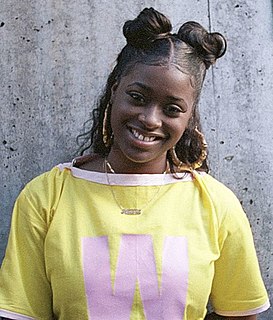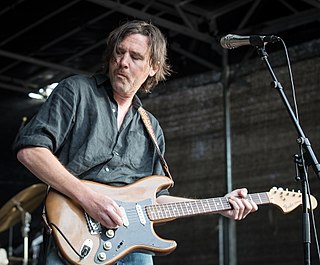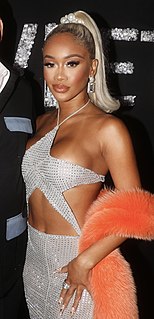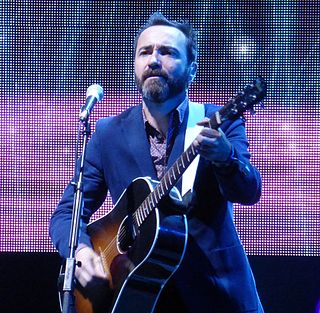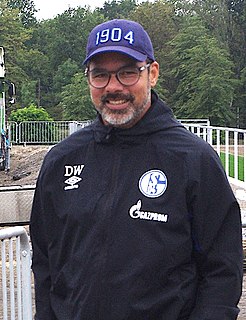A Quote by Jeffery Deaver
I like the way words go together and I like the gamesmanship of writing poetry. It is such a challenge.
Related Quotes
I think all writing is about writing. All writing is a way of going out and exploring the world, of examining the way we live, and therefore any words you put down on the page about life will, at some level, also be words about words. It's still amazing, though, how many poems can be read as being analogous to the act of writing a poem. "Go to hell, go into detail, go for the throat" is certainly about writing, but it's also hopefully about a way of living.
When I devoted myself to poetry - and poetry is a very serious medium - I don't think the people that knew me as an individual with that tongue-in-cheek kind of humor...well, it didn't always lend itself to my poetry. When you're writing poetry, it's like working with gold, you can't waste anything. You have to be very economical with each word you're going to select. But when you're writing fiction, you can just go on and on; you can be more playful. My editor's main task is to cut back, not ask for more.
There's no difference between lyrics and poetry. Words are words. The only difference is the people who are in academic positions and call themselves poets and have an academic stance. They've got something to lose if they say it's all poetry; if there's not music to it, and you have to wear a certain kind of checkered shirt or something like that. It's all the same. Lyrics are lyrics, poetry is poetry, lyrics are poetry, and poetry is lyrics. They are interchangeable to me.
In Dogen's writing, the practical instruction, philosophy and poetry are together in one voice. People hear about his poetry, go to his work, and expect to find poetry, or they hear about his philosophy and expect to find philosophy. They look just for practical instruction and find poetry and philosophy. They can't make out the complexity of his writing, become frustrated and let him go.
Imagism was a reductio ad absurdum of one or two tendencies of romanticism, such a beautifully and finally absurd one that it is hard to believe it existed as anything but a logical construction; and what imagist found it possible to go on writing imagist poetry? A number of poets have stopped writing entirely; others, like recurring decimals, repeat the novelties they commeced with, each time less valuably than before. And there are surrealist poetry, and political poetry, and all the othe refuges of the indigent.


